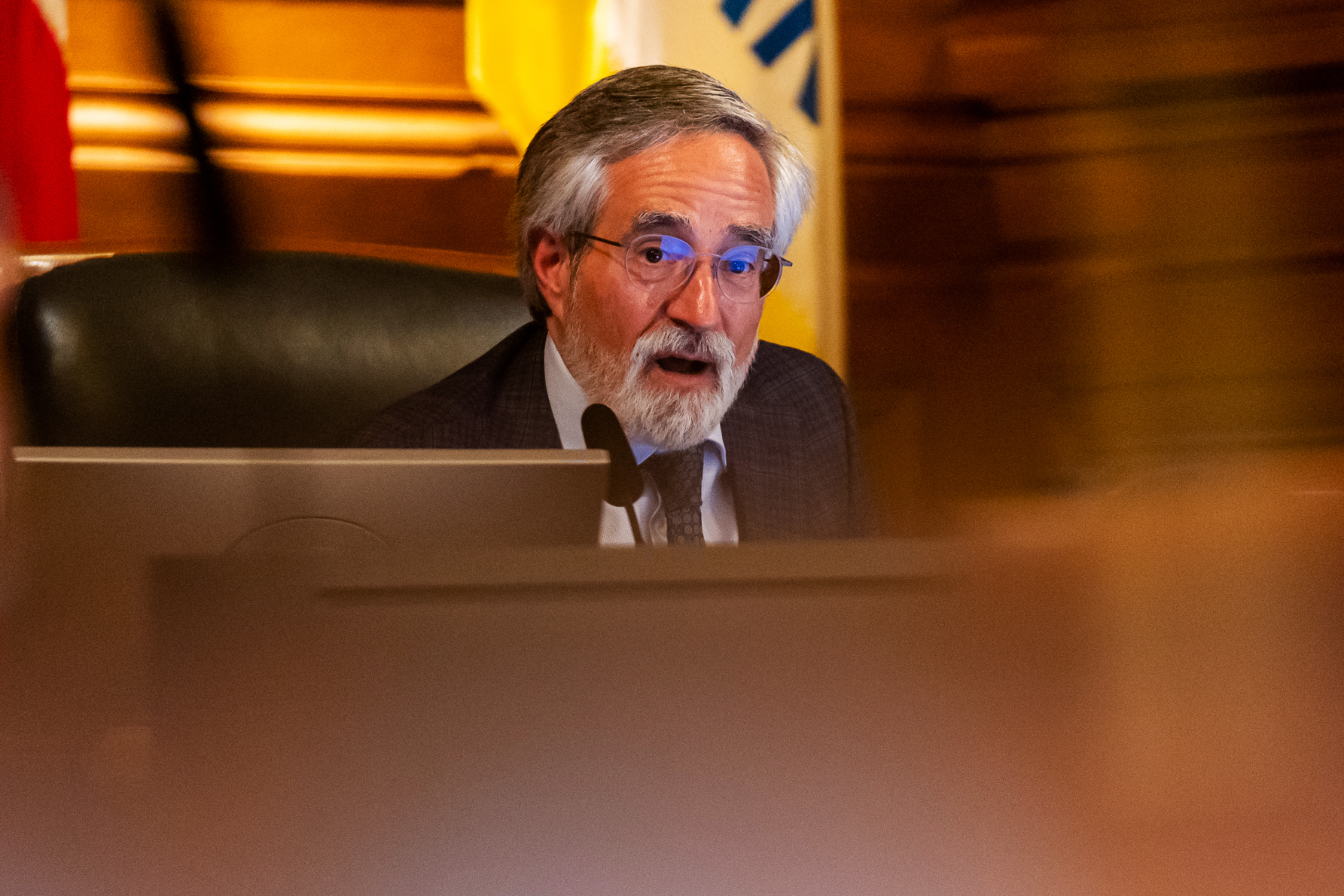In a speech on the steps of San Francisco City Hall in support of additional regulation on autonomous vehicles, Board of Supervisors President Aaron Peskin called on a California utilities commissioner to recuse himself from the vote for the full expansion of Cruise and Waymo robotaxi services.
Prior to his time on the utilities board, Commissioner John Reynolds spent around three years as managing counsel at Cruise, a subsidiary of General Motors. According to his public financial disclosures, Reynolds received a greater than $100,000 salary from Cruise and reported stock holdings in a number of companies including Apple, Superhuman and Byteboard.
None of his stock holdings appear to intersect directly with autonomous vehicles, Cruise or General Motors.
“Commissioner Reynolds is permitted to vote on the matter and currently intends to do so,” California Public Utilities Commission spokesperson Terrie Prosper said in a statement.
The California Public Utilities Commission (CPUC) has twice delayed a scheduled vote for unlimited expansion of Cruise and Waymo robotaxis in San Francisco amid growing opposition from local public officials and a rash of protests. The vote is currently slated for Aug. 10.
“This is an organization that has an ethically challenged history,” Peskin said. “You would think that they would want to be held to the highest standard, and this commissioner should recuse himself.”
Peskin specifically referenced the tenure of former Commissioner Michael Peevey as an example of that history. Peevey retired from the board in 2014 after public scrutiny over his cozy relationship with PG&E.
The utilities commission board consists of five members who are appointed by the governor for six-year terms. Compensation for a board position is $187,936. Reynolds was reappointed by Gov. Gavin Newsom in 2022 and confirmed by the state Senate.
Prior to his position at Cruise, Reynolds worked as a staffer for the California Public Utilities Commission for a number of years, including briefly as interim chief of staff to Commissioner Genevieve Shiroma.
Shiroma is the commissioner who twice delayed the vote over robotaxi expansion pending further review and has also called for an expedited rule-making process around stronger public data sharing for self-driving cars.
Supervisor Connie Chan said she “absolutely” agreed that Reynolds should recuse himself.
“Time and time again, I think the CPUC as a body is problematic, be it around issues like PG&E or autonomous vehicles,” Chan said. “People who are sitting in those seats and making those decisions actually are coming from those corporations. It’s a tradition of CPUC almost, and it’s time to break that.”
Peskin has come out strongly in favor of stronger guardrails on autonomous vehicles because of the impact he said they’ve had on emergency services.
He pulled up a text on his phone that came in at 4 a.m. that alerted him of an early morning fire in his district at 1030 Post St. where five people were rescued by first responders. A photo message showed a Cruise vehicle that drove into the fire scene.
Peskin referenced a recent video from Y Combinator CEO Garry Tan that argued that autonomous vehicles are much safer than human drivers and specifically identified Peskin and a handful of other supervisors as standing in the way of progress.
“The No. 1 duty of a government is the safety of its people, and when the chief of the fire department is telling policymakers that these devices are jeopardizing public safety, my job is to listen to that,” Peskin said.
“These are remarkably impressive technologies. That’s not the question. The question is, ‘Are you going to use San Francisco as an unlimited test ground for a technology that has not been perfected?’”
